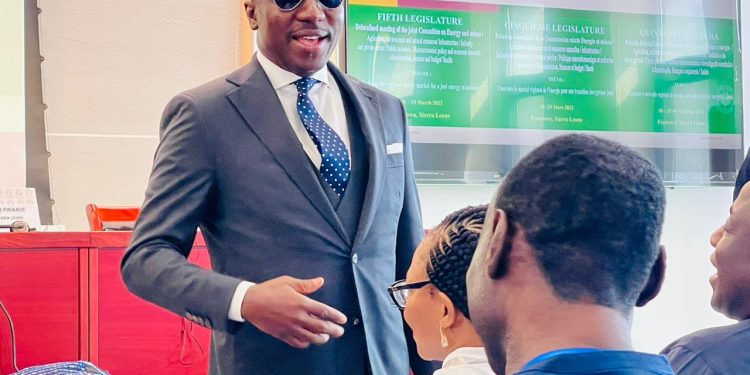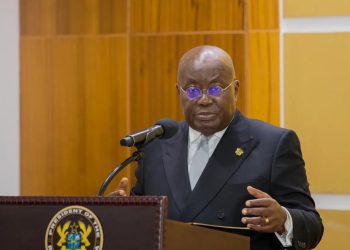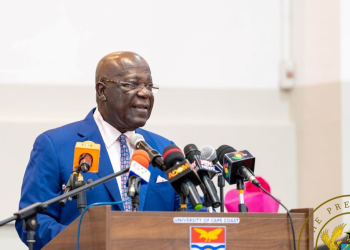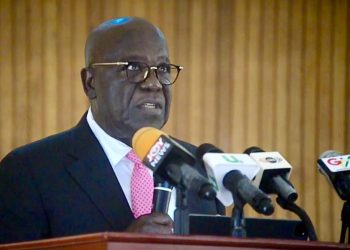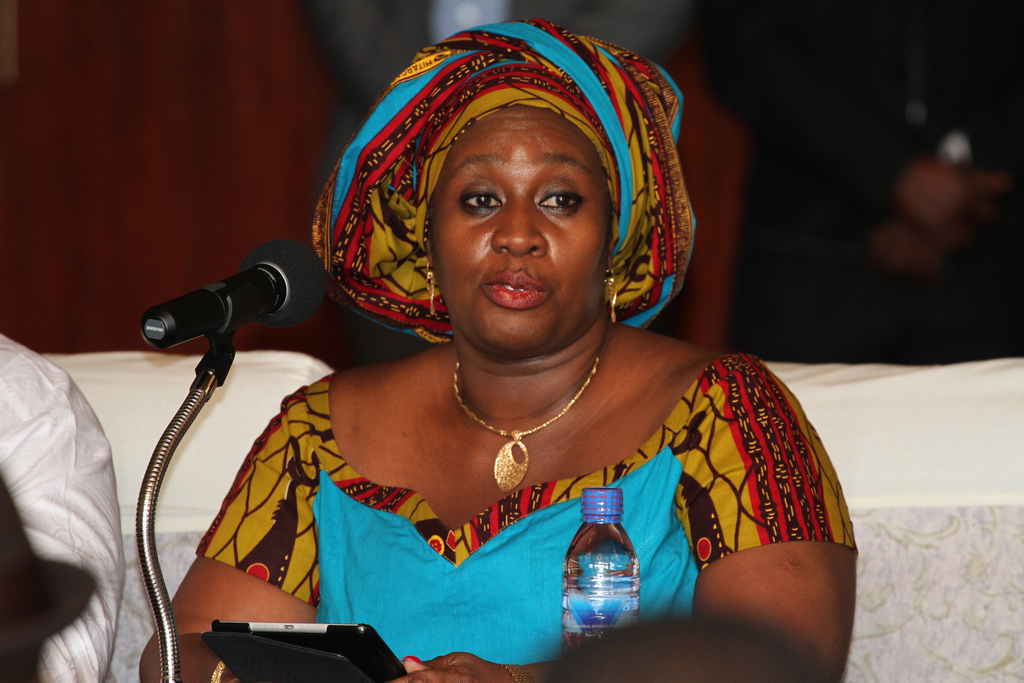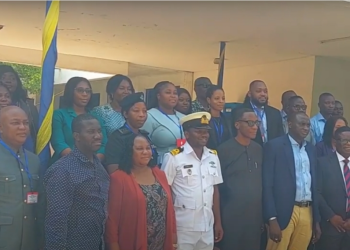The Leader of Ghana’s Delegation to the ECOWAS Parliament, Alexander Afenyo-Markin, has made “a passionate case” for countries within West Africa to sink “significant percentages of their GDP into developing the vast renewable energy potentials of the region to help fast-track efforts to achieve self-sufficiency in electricity generation.”
Renewable energy, according to the United Nations, “is energy derived from natural sources that are replenished at a higher rate than they are consumed.”
It includes sunlight, wind, water movement, and geothermal heat.
In West Africa, the electrification rate is one of the lowest compared to other regions in Sub-Saharan Africa, with approximately 220 million people living without access to electricity. About 60 million West Africans without access are in Nigeria, Africa’s most populous nation and economy.
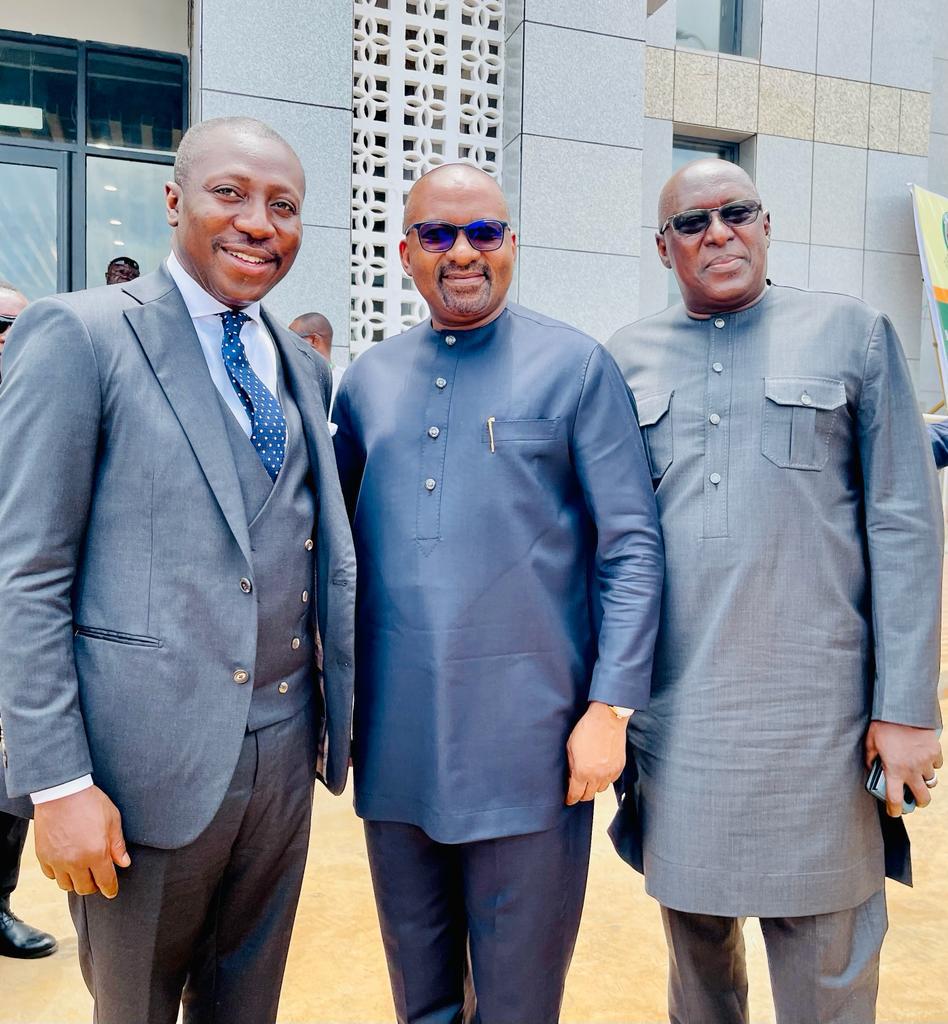
Moreover, the cost of electricity in this region is one of the highest, adding to the challenges the local population faces.
The recent surge in oil prices, triggered by the war in Ukraine, has further exacerbated the financial burden on electricity utilities, resulting in an urgent power supply crisis that poses a significant threat to the economic progress of countries in the region.
Additionally, there is a heavy reliance on oil-powered plants to fulfil the rising energy demands, which harms the environment and leads to a continuous increase in consumer tariffs.
Afenyo-Markin believes, “it is unacceptable that we live in a region where sunlight, seawater, rivers and wind are abundant, and yet over 200 million of our citizens are without access to electricity. We have a social and moral duty to fully harness and use these renewable sources of electricity generation to connect our homes, inspire industrial revolution, modernise our economies and catapult our people out of abject poverty.”
Renewable energy takes centre stage at Freetown meeting
The Effutu MP, also the Deputy Majority Leader in Ghana’s Parliament, spoke to Citi News on the sidelines of a Delocalised Meeting of the ECOWAS Parliament in Freetown, Sierra Leone’s national capital. The tiny West African nation’s Vice-President, Mohamed Juldeh Jalloh, opened the meeting, which is being held on the theme, “Building the regional energy market for a just energy transition.”
Members of the regional Parliament, which has its seat in Abuja, Nigeria’s Federal capital, are attending the meeting, which ends this Friday. The opening ceremony on Monday saw various speakers lament the yawning electricity deficit within West Africa, with Vice-President Jalloh making the point that if there is anything Covid-19 and Ukraine have taught Africa, it is the fact that the region must be “self-sufficient” in food and energy production.
Afenyo-Markin, who later endorsed Jalloh’s position in his interview with Citi News, believes that painful lessons have been learned from the twin disasters of Covid-19 and the war in Ukraine. That’s why, he said, national and regional policymakers must respond with measures that guide ECOWAS member states and the entire region towards medium to long terms self-sufficiency in energy and food production.
Afenyo-Markin, who also chairs the Agriculture Committee of the ECOWAS Parliament, adds: “What many people don’t realise is that if we have reliable, safe and affordable power supply across the region, agriculture and agro-processing will explode, thereby guaranteeing a steady progress towards food security.”
Need for urgent action
Afenyo-Markin concedes that harnessing the region’s vast renewable energy potential requires high-end expertise and massive capital investments, often in short supply. But, he said, “we cannot, as leaders, throw our hands in the air and say we do not have the means. We must find the means, and we are doing so in Ghana for instance, because if we don’t, we will fail to transform our economies and cannot, as a result, lift our people out of endemic poverty.”
He adds, “Even if it takes creating a suitable economic climate and legal framework to encourage the private sector to invest massively and meaningfully in these renewable energy sources, we must do it because the rest of the world is not waiting for us.”
Countries in the region, he says, “must, therefore, act with a sense of extreme urgency to find the much-needed financial resources to make the necessary investments to liberate our people and national economies.”
Experts say most of West Africa’s renewable electricity generation is from hydro sources, thanks to dams built across the region, principally in countries like Nigeria and Ghana. Hydropower sources, including mixed plants, generate approximately 94.2% of the total renewable energy used in West Africa, with nearly 5,513 MW of power being produced in 2021.
Afenyo-Markin told Citi News that the time has come for West Africa to do more to “diversify its electricity generation sources.”
Sierra Leone and others lead new renewable energy efforts
Already, Chad, Liberia, Sierra Leone, and Togo have started a new drive to deepen electricity generation within their respective countries through a new campaign known as the Regional Emergency Solar Power Intervention Project (RESPITE). It aims to boost electricity access to millions of existing and prospective consumers in Chad, Liberia, Sierra Leone, and Togo. It also seeks to quicken grid-connected renewable energy capacity and strengthen regional integration in the member nations.
RESPITE, said to cost 311 million USD, has the support of the World Bank. It was approved on December 20, 2022, with legal agreements signed in Freetown, at the end of January 2023.
At the signing ceremony, Sierra Leon’s President, Julius Maada Bio, said: “We are paying far more for energy now than we were 18 months ago. Very high and rising energy prices continue to have an adverse impact on other sectors of our economies.”
He added: “This regional intervention is much needed in the short term. Today, our countries are taking a bold step in the right direction. RESPITE is the beginning of a revolution in energy supply and access.”
Afenyo-Markin points to the efforts being made under RESPITE to argue that more significant economies like Nigeria, Ghana, Senegal and Ivory Coast must provide more outstanding leadership to enhance West Africa’s drive towards energy sufficiency.
Already, there is some progress being made. For example, in November 2022, NEoT Offgrid Africa, an energy investment platform established by France’s EDF and Meridiam, announced they were working with two other companies to develop a 1.7 megawatt (MW) solar power project in Benin. The project will connect a dozen rural localities, including 3 MWh of battery capacity to feed over 5,000 homes and businesses with electricity.
Also, in August 2022, Ghana’s Volta River Authority opened a 13MW Solar Power Project at Kaleo. It was said to be the first phase of what will eventually be a 28MW plant at Kaleo in the north of Ghana. Authorities say the VRA will receive a further USD 16 million from German Development Bank (KfW) to construct the second phase of the Kaleo Solar Power Plant, adding some 15MW to the project by mid-2023.
Afenyo-Markin believes “big players like Nigeria, Ghana, Ivory Coast and Senegal must scale up investments in these renewable energy sources to inspire other countries within the region to follow suit.”
Also, he said, countries within the region must take full advantage of the West Africa Power Pool (WAPP), a specialised agency of ECOWAS, to sell excess power from these generation sources to countries in dire need of more electricity.”
WAPP’s vision is to “integrate the national power systems into a unified regional electricity market with the ultimate goal of providing, in the medium and long term, regular and reliable energy at a competitive cost to the citizenry of the ECOWAS region.” Its mission is to promote and develop power generation and transmission infrastructures and coordinate power exchange among the ECOWAS Member states.
In a presentation to ECOWAS MPs in Freetown, Denis Asare, a lead researcher at Imani Africa, made the point that, despite the challenges of the regional market, it still offers significant tariff and financial savings to member states.
“Ghana, Cote d’Ivoire, and Nigeria,” he said, “could achieve production savings of about US$250 million and US$700 million respectively by 2025 with unit cost saving between 4-11 per cent. Importing countries will benefit significantly from the regional electricity market.”
Electricity as a weapon against poverty and insecurity
The Effutu MP believes that for the region, which is facing Islamist insurgency, food crisis and endemic poverty, to provide a formidable response to the many problems it faces, there must be “an unfettered commitment to lighting every nook and cranny of our cities, towns and villages to empower our people and to give them a reason to hope for a better future.”
While pressing for a new way of doing things in the region, the Effutu MP tells CitiNews: “We need a paradigm shift that emphasises electricity for all, using off-grid renewable energy sources as the tramp card to get our people out of darkness and to expose them to the vast opportunities that access to reliable, safe, and affordable electricity offer.”
He adds, “As we speak, a massive tissue factory is under construction in my constituency, Effutu. When I first visited New Winneba, the community hosting the factory years to campaign for votes, the place was practically a village with no hope of immediate modernity.
“Today, the place is almost a vibrant city still admitting new businesses. People are moving in there to buy huge tracks of land and are developing them on a massive scale. New, sustainable and rewarding jobs are emerging. By all accounts, the people of New Winneba are becoming economically empowered. The truth is purposeful leadership and a reliable supply of electricity are making a huge difference in the lives of the people. We need to see transformational projects like what is happening in New Winneba across West Africa.”
Need for policy reforms
In his presentation at the ongoing meeting in Freetown, Imani Africa’s Asare spoke of huge opportunities for the energy market in West Africa. But, he said, “Governments must commit to creating a stable political and economic environment to reduce the risk of project failure in the sub-region.” He said, “the recent political instability in Burkina Faso, Mali, and Guinea continues to increase the political risk of project development in the sub-region.”
Amongst other things, Asare told ECOWAS MPs that “Given the investment in off-grid renewable solutions in West Africa, governments must create a sound regulatory framework such as transparent licensing and tariff regimes for such solutions to thrive.”
He said, “Key corporate governance reforms such as ownership and shareholder quality, board autonomy, low political interference, and performance monitoring are essential to revamping power utilities to be viable.”
He added, “The regional regulatory bodies must invest in comprehensive power planning to support member states to understand the long-term power sector needs and total investment required to meet domestic and regional energy needs.”

